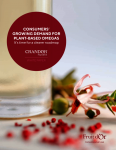High MUFA intake linked to lower hypertension risk – major Korean RCT

Researchers from South Korea found that a higher intake of MUFA reduce the incidence of hypertension risk by about 51%.
They published their findings in the journal Nutrients.
Method
The study enrolled 1529 healthy subjects without hypertension from the ongoing Korean Genome and Epidemiology Study (KoGES).
Participants were divided into three groups of varying dietary MUFA intake (7.9g/day, 12.2g/day, 18.5g/day).
The subjects were followed over four years.
Dietary assessments were collected via food frequency questionnaire, and MUFA values were estimated using food composition table.
Blood pressure was measured at baseline and biannually.
Hypertension was defined as systolic blood pressure ≥140 mmHg, diastolic blood pressure ≥90 mmHg, or on antihypertensive medication during follow-up.
MUFA and blood pressure
The study revealed that systolic blood pressure decreased significantly with increasing MUFAs intake (p < 0.0001).
The mean blood pressure in the lowest MUFA intake group was 115.1 mmHg, which was higher than other groups (middle: 112.1 mmHg, highest: 111.8 mmHg).
Body fat percent, waist, and waist to hip ratio were also higher in the lowest MUFAs intake groups (p < 0.05). These factors are known to be contributing factors.
The study reported that subjects in the highest MUFAs intake group were significantly younger (p < 0.05), and had a higher education level and household income (p < 0.001).
It could perhaps explain why the highest MUFA intake group (mean age: 48) had a significantly decreased risk of hypertension than the middle and lowest group, where the mean age was 50 and 55 respectively.
According to researchers, evidence has shown that dietary MUFAs are associated with cardiometabolic risk factors (such as blood pressure, hypertension, or CVD incidence).
“A possible mechanism for dietary MUFAs lowering hypertension risk may be the modified composition of the phospholipid membrane, which controls the rise or drop in blood pressure,” they said.
Up next
The researchers said their study suggest high MUFAs intake may be a strong protective factor against hypertension, but further research is required.
They pointed out that most of these studies have been conducted in the US and Europe, and MUFAs consumption is typically recommended as <20% of total energy intake for a healthy adult in those regions.
They said there is no specific optimal recommendation and limited information is available for the Asian region.
“Replicating our findings in additional studies in diverse populations is needed,” they added.
The researchers concluded that dietary MUFA intake had protective effects against hypertension and a high MUFA intake was more strongly associated with a reduction in hypertension risk.
Source: Nutrients
https://doi.org/10.3390/nu11081928
Protective Effects of Dietary MUFAs Mediating Metabolites against Hypertension Risk in the Korean Genome and Epidemiology Study
Authors: Hansongyi Lee, et al.















